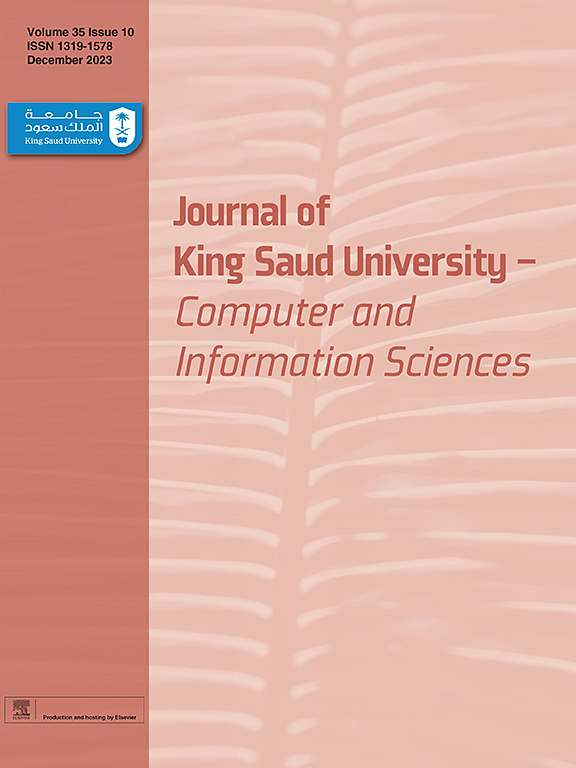Quantum computing enhanced knowledge tracing: Personalized KT research for mitigating data sparsity
IF 6.1
2区 计算机科学
Q1 COMPUTER SCIENCE, INFORMATION SYSTEMS
Journal of King Saud University-Computer and Information Sciences
Pub Date : 2024-11-01
DOI:10.1016/j.jksuci.2024.102224
引用次数: 0
Abstract
With the development of artificial intelligence in education, knowledge tracing (KT) has become a current research hotspot and is the key to the success of personalized instruction. However, data sparsity remains a significant challenge in the KT domain. To address this challenge, this paper applies quantum computing (QC) technology to KT for the first time. It proposes two personalized KT models incorporating quantum mechanics (QM): quantum convolutional enhanced knowledge tracing (QCE-KT) and quantum variational enhanced knowledge tracing (QVE-KT). Through quantum superposition and entanglement properties, QCE-KT and QVE-KT effectively alleviate the data sparsity problem in the KT domain through quantum convolutional layers and variational quantum circuits, respectively, and significantly improve the quality of the representation and prediction accuracy of students’ knowledge states. Experiments on three datasets show that our models outperform ten benchmark models. On the most sparse dataset, QCE-KT and QVE-KT improve their performance by 16.44% and 14.78%, respectively, compared to DKT. Although QC is still in the developmental stage, this study reveals the great potential of QM in personalized KT, which provides new perspectives for solving personalized instruction problems and opens up new directions for applying QC in education.
量子计算增强知识追踪:缓解数据稀疏性的个性化 KT 研究
随着人工智能在教育领域的发展,知识追踪(KT)已成为当前的研究热点,也是个性化教学成功的关键。然而,数据稀疏性仍然是知识追踪领域的一个重大挑战。为应对这一挑战,本文首次将量子计算(QC)技术应用于 KT。它提出了两种结合量子力学(QM)的个性化知识追踪模型:量子卷积增强知识追踪(QCE-KT)和量子变分增强知识追踪(QVE-KT)。通过量子叠加和纠缠特性,QCE-KT 和 QVE-KT 分别通过量子卷积层和量子变分电路有效缓解了知识追踪领域的数据稀疏性问题,显著提高了学生知识状态的表征质量和预测精度。三个数据集的实验表明,我们的模型优于十个基准模型。在最稀疏的数据集上,QCE-KT 和 QVE-KT 的性能比 DKT 分别提高了 16.44% 和 14.78%。虽然 QC 仍处于发展阶段,但本研究揭示了 QM 在个性化 KT 中的巨大潜力,为解决个性化教学问题提供了新的视角,也为 QC 在教育领域的应用开辟了新的方向。
本文章由计算机程序翻译,如有差异,请以英文原文为准。
求助全文
约1分钟内获得全文
求助全文
来源期刊

Journal of King Saud University-Computer and Information Sciences
COMPUTER SCIENCE, INFORMATION SYSTEMS-
CiteScore
10.50
自引率
8.70%
发文量
656
审稿时长
29 days
期刊介绍:
In 2022 the Journal of King Saud University - Computer and Information Sciences will become an author paid open access journal. Authors who submit their manuscript after October 31st 2021 will be asked to pay an Article Processing Charge (APC) after acceptance of their paper to make their work immediately, permanently, and freely accessible to all. The Journal of King Saud University Computer and Information Sciences is a refereed, international journal that covers all aspects of both foundations of computer and its practical applications.
 求助内容:
求助内容: 应助结果提醒方式:
应助结果提醒方式:


